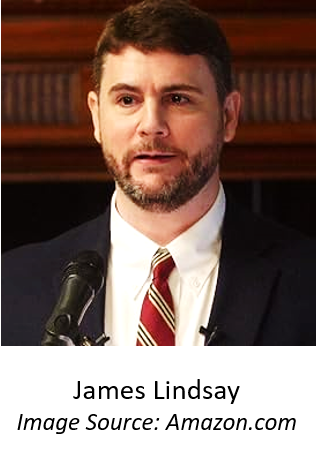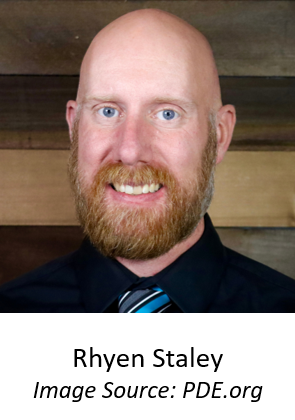The Sinister Intent of ‘Decolonization’
“Decolonization” has become a buzzword for the “oppressed” and “oppressor” worldview, and has been cropping up more and more frequently in the news, online, and around the world. A recent New York Times article aptly stated: “As an insult, or line of attack, ‘colonial’ is enjoying a field day,” implying that “colonialism” or the international progress that “has shaped modernity” is now to be vilified and dismantled.
Pundits and news outlets like the New York Times are jumping on the bandwagon of the Palestinian cause “as an extension of the powerful movements for racial and social justice that have unfurled, particularly in the United States, since 2020. In 2021, Black Lives Matter issued a statement declaring ‘solidarity with Palestinians’ and opposition to ‘settler colonialism in all forms.’”
The NYT quoted Russian foreign minister Sergey V. Lavrov, as saying: “We are witnessing neocolonial instincts in the West.... There is a desire to continue living at the expense of others, as they have been doing for over 500 years.” Why the reporter included Lavrov’s quote is anyone’s guess, because he evidently felt compelled to acknowledge that his remarks were made “even as his country waged what looks very much like a war of imperial expansion in Ukraine.” But the Russian’s words reflect the latest politically correct mindset of the Left, including the implication that, despite the historical complexities of the region and its peoples, the Israelis must be the oppressors and the Palestinians the oppressed.
Decolonizing the curriculum
In fact, the term “decolonization” poses a more sweeping and sinister threat than many observers may imagine. In the fall of 2020, author and mathematician James Lindsay, Ph.D. penned an article for the National Association of Scholars (NAS) titled “Decolonizing the Curriculum,” in which he explained how the broader movement is to “decolonize just about everything, including [in education] the curriculum, the faculty, the university, literature, science, and even time and space. The purpose of this movement is, nominally, to create ‘justice’... —as in ‘justice for marginalized socially constructed groups’ instead of individuals....” [Emphasis in original.]
in which he explained how the broader movement is to “decolonize just about everything, including [in education] the curriculum, the faculty, the university, literature, science, and even time and space. The purpose of this movement is, nominally, to create ‘justice’... —as in ‘justice for marginalized socially constructed groups’ instead of individuals....” [Emphasis in original.]
For the decolonizers, the “curriculum” refers to what gets taught, and the key word is gets, as in what is allowed to be taught. To them, the enemy is the status quo and those wishing to preserve it through the teaching of “core” subjects like math, English, and science, as opposed to electives such as “ethnic studies.” They believe that disrupting the dynamics of “systemic power” that they view as driving these decisions should be “considered of far more importance than equipping students with knowledge.”
Decolonization in a broad sense then, means disregarding the body of knowledge amassed over the centuries, particularly during the 500 years since the “enlightenment.” Researcher Rhyen Staley of the group Parents Defending Education encapsulated the definition in a Washington Times op ed on October 24:
- ...decolonization is a principle of liberated, or critical, ethnic studies and is embraced by groups such as Black Lives Matter, the Democratic Socialists of America, Hamas, the American Library Association, and LGBTQ activists. It is a demand to deconstruct or remove Western influences from positions of power, elevate “other ways of knowing,” and promote non-White, non-male, non-Western groups.
Staley explained that while “ethnic studies is packaged as an anthropological and historical study of non-White cultures” and as “teaching the truth about other cultures,” the actual product turns out to be “political programming intent on attacking and destroying Western civilization in the quest to gain power.”
According to James Lindsay, decolonizing the curriculum, therefore, is to view it as “an ideological project devised by the powerful in society—meaning mostly straight, white, Western men with a ‘Eurocentric’ bent on things like science, reason, and rationality, among other proven epistemological and pedagogical frameworks—that was made the way it was to continue to promote and serve their own interests at the expense of everyone else’s, either by intention or by failing to understand that they’ve internalized their dominance and come to believe it right and natural.”
Lindsay suggests that it would be one thing if decolonizing were truly about expanding and diversifying the array of scholarship, voices, and perspectives into the curriculum, but he explains “it’s about attending to a complete revolution in terms of what we consider knowledge, how that can be determined, and how it should be taught.” In other words, decolonizers want to dismantle five centuries of what the world has come to consider knowledge, which, as Lindsay notes, “would threaten not only Western culture but the tremendous strides into modernity some aspects of that culture have enabled much of the world to take.” This, he urged, must be resisted.
The ‘hidden curriculum’
A decolonized curriculum looks a lot like what schools are teaching today, and it’s based on the precepts of radical decolonization promoters including Brazilian educator Paulo Freier, whose influence on U.S. education is the topic of Lindsay’s 2022 book The Marxification of Education. Lindsay believes understanding that Freire’s pedagogy began “from a postcolonialist mindset” helps make sense of an otherwise confusing trend in education today: “the decolonization phenomenon.”
Decolonization must happen, Freier believed, because colonization of “the knowing system — and thus education and literacy — is at the heart of why education produces and reproduces the stratified and unjust society, including through so-called ‘humanitarian’ education programs that train people to accept their oppression.” Lindsay notes that “this assumption of colonized and ‘decolonizing’ curriculum makes its way prominently into education today largely because of Freire,” although also significantly through “the work of a later Critical Pedagogue, Joe L. Kincheloe.”
In his NAS article, Lindsay identifies what he calls “an even more sinister attitude tucked away in another buzz-phrase that hovers around the ‘decolonize the curriculum’ agendas: the ‘hidden curriculum.’” He traced this phrase back to educator Phillip Jackson, whom he credits with coining the term in the 1968 book Life in Classrooms. The hidden curriculum means that which is communicated outside of the official written curriculum, i.e., the unwritten lessons, values, attitudes, and perspectives that students learn in the classroom from teacher “facilitators.”
The advantage of the hidden curriculum for decolonization purposes is that different agendas can replace the values previously conveyed in education, such as “methodological rigor, rationality, liberal civics, and ethics....” Other agendas might, for example, replace the former with “cultural traditions and witchcraft instead of empiricism,” as in the “Science must fall” and the call for decolonization movement in South Africa. This anti-scientific uprising began at the university level in 2015 and “tapped into the sentiment that scientific thinking was incongruent with African indigenous belief systems, and is thus a cultural imposition that should be eradicated along with other foreign symbols and practices.”
Fruits of decolonization
The promotion of any leftist doctrine typically manifests itself as a “cause” supported by demonstrations in the streets of Western countries by scores of mostly young people fortified with years of progressive conditioning in government schools, and primed with the notion of a righteous group grievance. The push for decolonization is no exception.
 Along with the New York Times and other media voices, Rhyen Staley’s Washington Times piece connects the decolonization movement with the recent pro-Palestinian protests on college campuses and in the streets of major cities. But he rightly notes that “this is not a spur-of-the-moment rallying cry or theory relegated to the halls of academia. It is the culmination of political programming taught to students from kindergarten to college.”
Along with the New York Times and other media voices, Rhyen Staley’s Washington Times piece connects the decolonization movement with the recent pro-Palestinian protests on college campuses and in the streets of major cities. But he rightly notes that “this is not a spur-of-the-moment rallying cry or theory relegated to the halls of academia. It is the culmination of political programming taught to students from kindergarten to college.”
Staley explains that, rather than merely an academic theory, decolonization is “a call to action” as in an actionable ideology, and that its advocates “are using the U.S. education system to sow the seeds of resentment and guilt between races, and to train children to dismantle Western civilization.”
He described for example an ethnic studies class in the Boston Public Schools titled “Resistance, Transformation, Action, and Change.” The course content includes “ideologies and past radical movements such as Marxism, postcolonialism, the Zapatistas, the Black Panther Party, the Young Lords Party, and Cuba’s communist revolution” which serves as the necessary background knowledge for students to “be inspired” to “resist oppression” and to “enact change.”
He offered as a further example the “model” preschool lesson titled “What Is Normal?” which begins by having four-year-olds recite: “We remind ourselves that we are sitting on the land of the [Indigenous land] in [city, state].” Writes Staley: “Unlike the daily routine of reciting the days of the week, this seeds the idea in the youngest learners’ heads that they are living on ‘stolen land.’ It is an insidious, subtle statement meant to program students who cannot even tie their shoes to believe that they are either ‘colonizers’ or the ‘colonized.’”
Poll tells the story
How is decolonization working out for America’s young people? According to an October 30 op-ed in the Washington Examiner, “the kids are not all right.”
This article similarly cites the unrest on the nation’s college campuses as the Israeli-Hamas conflict rages, and points out that these are not merely the actions of a few fringe elements. It goes on to describe results from a recent Harvard Harris Poll which found that 41 percent of 18-24-year-olds (Generation Z) think Hamas should be considered “militants” rather than “terrorists” and that 51 percent of the same age group believes “the Hamas killing of 1,200 Israeli civilians can be justified by the grievances of Palestinians.”
The poll further shows that among Gen Z (dubbed Zoomers), “two in every five believe government should have the power to prevent people from making offensive statements, while just 27 percent of Generation X agrees with this. Almost half of Zoomers say it is acceptable to suppress the speech of those who disagree with them about race.”
Additionally, 40 percent of Zoomers believe our country’s founders “are better described as villains” than “heroes,” and 60 percent also disagreed with the statement that “America is a fair society where everyone can get ahead.” Given this skewed view of our nation and its history, one might expect that “only 36 percent of Zoomers say they are proud to be an American,” while in contrast, “86 percent of those 65 and older are proud of their country.”
The Examiner blames the education system for immersing Gen Z in “a Manichean ‘oppressed’ and ‘oppressor’ worldview,” to which the key is that “identity reigns supreme, not actions.” As the article notes: “We need to do more to eradicate the “oppressor” and “oppressed” narrative from our classrooms, from kindergarten all the way to graduate school ... We need to take a much harder look at regulating social media, even for adults. Where is all this anti-American propaganda coming from? Who is writing the algorithms that force-feed it to our young?
“If we clean up our schools and delete social media from our devices, there will be hope for the next generation.”
It’s likely to be a long uphill battle.
Want to be notified of new
Education Reporter content?
Your information will NOT be sold or shared and will ONLY be used to notify you of new content.
Click Here
Return to Home Page
